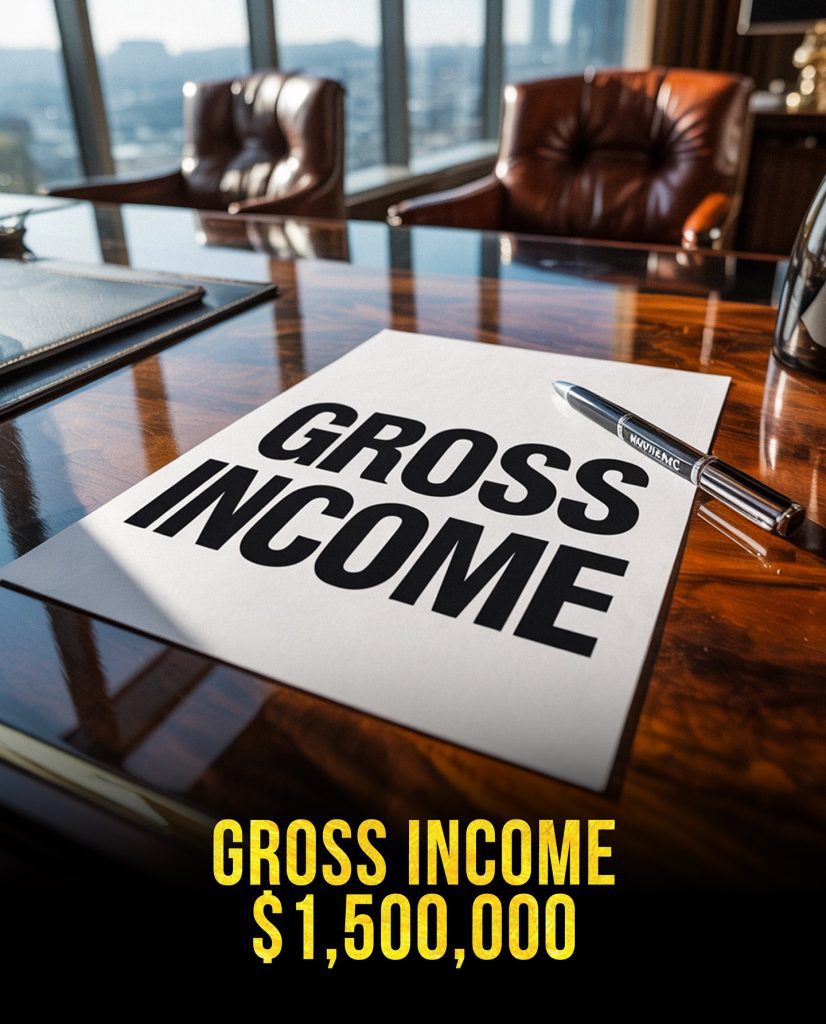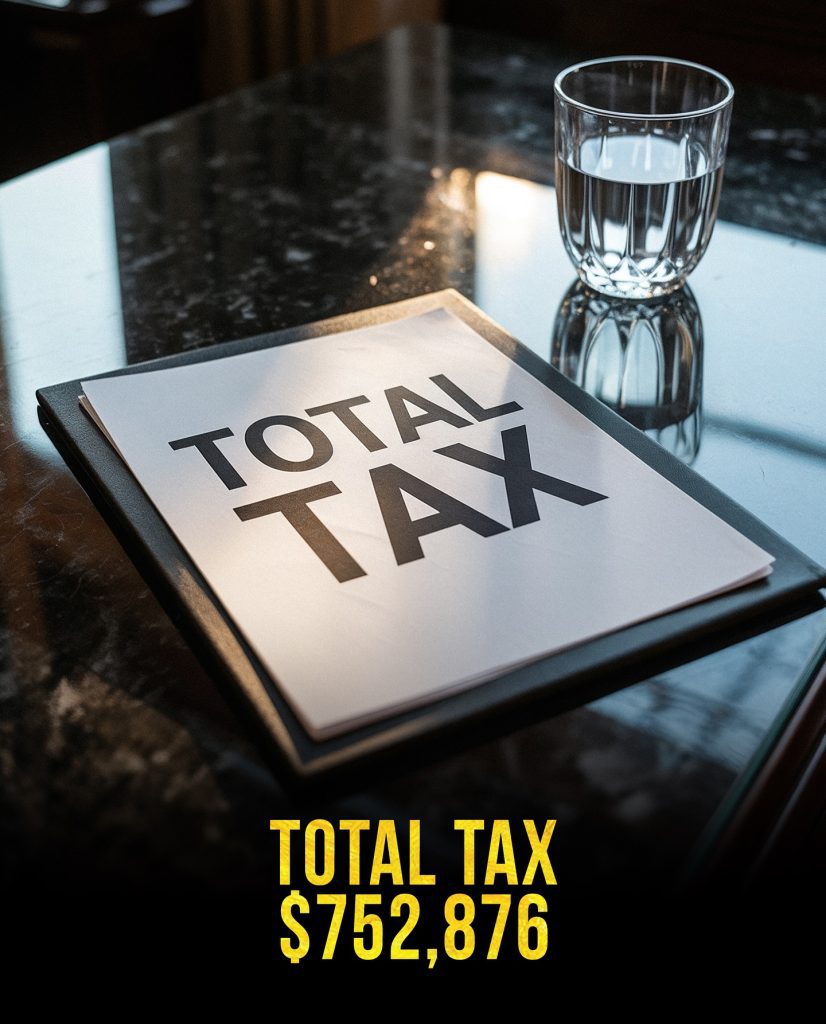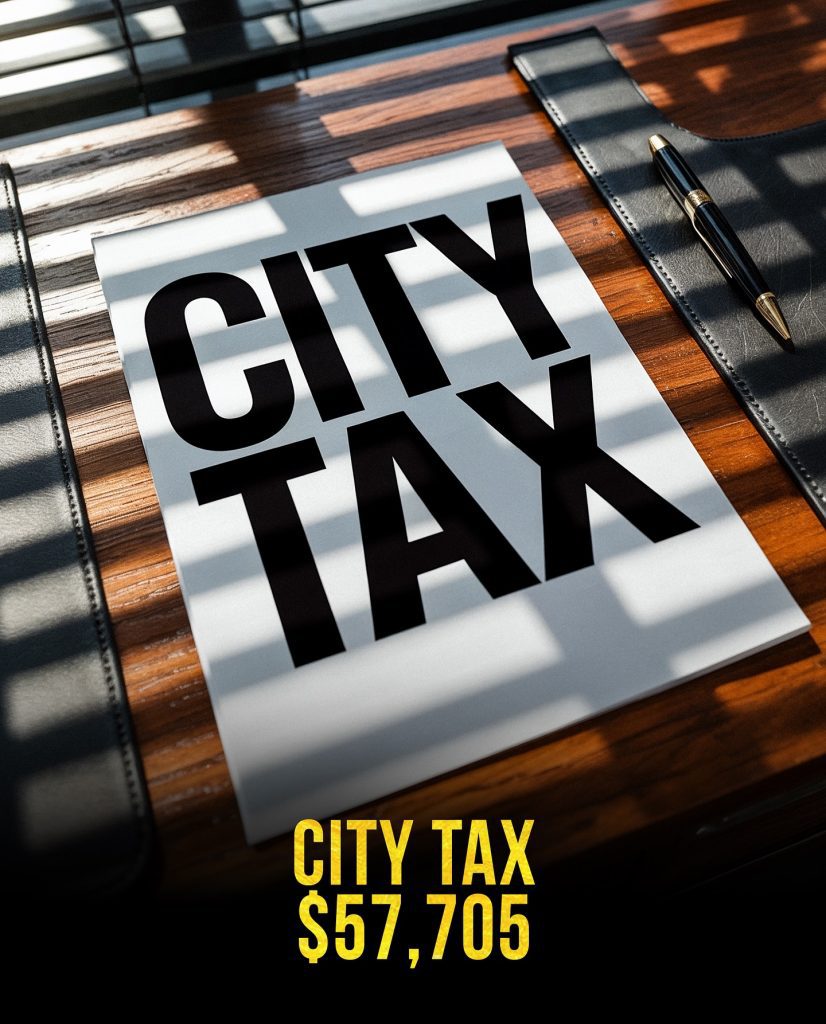This Is What a Salary of $1,500,000 Looks Like After Taxes in New York
Gross Income: $1,500,000

Let’s start with the headline number. A salary of $1.5 million sounds like the kind of figure that could change a life. It’s the kind of paycheck we associate with Wall Street executives, top lawyers, or highly successful entrepreneurs. At first glance, the number is dazzling—it represents the ability to live in a Manhattan high-rise, travel first-class, and enjoy luxuries most people only dream of.
But as any New Yorker will tell you, the sticker price of income isn’t the real story. In the Empire State, and especially in New York City, high earners pay some of the steepest taxes in the nation. That’s where the journey of this $1.5 million paycheck begins to take a very different shape.
Tax Rate: 50.2%

When you break it down, someone making $1.5 million in New York City faces an overall tax rate of about 50.2%. That means, quite literally, more than half of every dollar earned is spoken for before it ever reaches your bank account.
This combined rate is the sum of federal, state, city, and payroll taxes. While the U.S. federal government takes the lion’s share, New York State and New York City add their own bite, creating one of the highest effective rates in the country. The math is cold but undeniable: out of every $10 you earn, just under $5 makes it into your pocket.
Total Tax: $752,876

Crunching the numbers, the total tax bill comes out to $752,876. That’s nearly three-quarters of a million dollars in taxes alone—more than many families would ever earn in a decade.
For some, this figure feels shocking. After all, you might imagine that a $1.5 million salary should mean instant financial freedom. But living in New York at that level comes with a built-in understanding: you’ll be contributing heavily to the system. The upside is that those tax dollars go toward funding schools, hospitals, public safety, transportation systems, and countless other services that keep the city running.
Still, it’s hard to ignore just how heavy that bill really is when you see the final number on paper.
Net Income: $747,124

Here’s the real bottom line: after all taxes, your take-home pay is $747,124. For most of us, that’s still a life-changing amount of money. With careful planning, it’s more than enough to live comfortably, invest wisely, and build generational wealth.
But the contrast is clear. A $1.5 million salary doesn’t mean $1.5 million in lifestyle. It means roughly three-quarters of that once the IRS and local governments have had their share. That’s why many wealthy New Yorkers joke that they work “for the government until July” before they finally start working for themselves.
Federal Tax: $506,470

Of all the deductions, the federal government claims the largest slice. At this income level, you fall into the top federal tax bracket, where rates are steepest. The result: more than half a million dollars sent to Washington.
It’s not surprising. Federal taxes are progressive, meaning the higher you earn, the higher percentage you pay on your top dollars. For someone earning $1.5 million, this is the single biggest cost, dwarfing everything else.
State Tax: $143,978

New York State has some of the highest state taxes in the country, and for high earners, that adds up quickly. On $1.5 million, the state claims nearly $144,000.
This money helps fund statewide programs, from education to healthcare initiatives. But for those paying it, it can feel like an extra weight added on top of already hefty federal obligations.
City Tax: $57,705

Only a handful of cities in the U.S. impose their own local income tax, and New York City is one of them. The city takes about $57,705 on a $1.5 million salary.
This money is funneled directly into city services: subways, fire departments, public schools, sanitation, and infrastructure that keeps one of the busiest cities in the world moving. It’s one reason New York can operate at the scale it does—but for earners, it’s also one more deduction from their paycheck.
Medicare: $33,450

High earners also contribute significantly to Medicare. At this level, you’re paying about $33,450 into the system. These payroll taxes help fund healthcare for seniors and support a program that millions of Americans rely on.
It’s not a number that often makes headlines, but it’s part of the payroll landscape that affects everyone, whether you’re making $50,000 or $1.5 million. The difference, of course, is scale.
Social Security: $10,918

Social Security contributions for someone making $1.5 million come in at about $10,918. Unlike Medicare, Social Security contributions are capped after a certain income level, which is why this figure is relatively modest compared to others.
Still, it’s an important reminder that even the wealthiest individuals contribute to the same programs that millions of retirees and disabled Americans depend on.
Paid Family Leave: $355

Finally, a small but notable deduction: New York’s paid family leave program, which takes about $355 from a salary this size. While it’s a tiny fraction of the total, it supports an important benefit for workers who need time off to care for family members or new children.
It’s proof that even at the very top of the income ladder, you’re still connected to the social fabric of the state.
The Bigger Picture
So what does all of this mean? A $1.5 million salary in New York City translates into a take-home pay of around $747,124. That’s an extraordinary amount of money—far beyond what most people will ever earn. It allows for a luxurious lifestyle, with plenty of room for savings, investments, and experiences.
But it also highlights just how much the government takes in taxes, especially for high earners in high-tax states. More than $750,000 of that salary never reaches your pocket—it goes directly to supporting public systems.
Some see this as a fair trade-off: after all, New York offers opportunities, services, and infrastructure few other places in the world can match. Others view it as a steep price to pay for the privilege of living and working in the city.
The lesson here isn’t just about numbers. It’s about perspective. Big salaries look glamorous on paper, but the reality is always more complex. Taxes shape not just what you earn, but how you live, what you invest in, and how much freedom you feel at the end of the day.
For anyone dreaming of seven-figure paychecks in New York, this breakdown is a reminder: success is sweet, but the tax man always comes knocking. The real question becomes—what do you do with what’s left? That’s where wealth, security, and happiness are truly defined.

